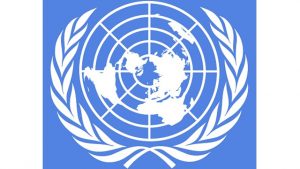 UNITED NATIONS, United States (CMC) — Haiti has joined the international community in condemning all instances of human trafficking as the United Nations’ Security Council heard from more than 70 speakers during a day-long open debate on the subject, Tuesday.
UNITED NATIONS, United States (CMC) — Haiti has joined the international community in condemning all instances of human trafficking as the United Nations’ Security Council heard from more than 70 speakers during a day-long open debate on the subject, Tuesday.
Drawing attention to the link between conflict and human trafficking, former Haitian prime minister, Jean-Max Bellerive said the crime has “heightened vulnerability and undermined human rights all over the world”.
Bellerive nonetheless, said it was “crucial to bolster security, create conditions that were conducive to development and dismantle terrorist networks”.
“Alleviating poverty was also critical,” he said, acknowledging that, as a long-term solution, it would mitigate underlying factors.
By unanimously adopting resolution 2331 (2016),the 15 member Security Council, responsible for the maintenance of international peace and security, stressed that human trafficking contributes to other forms of transnational organised crime, “which could exacerbate conflict and foster insecurity and instability”.
The council also stressed that acts of human trafficking during armed conflict, as well as sexual and gender-based violence, could be part of the strategic objectives and ideologies of certain terrorist groups by, among other things, “incentivising recruitment, supporting financing through the sale of women, girls and boys, and use of religious justifications to codify and institutionalize sexual slavery”.
By the resolution, the council, therefore, called on UN Member States, among other things, to “investigate, disrupt and dismantle the networks involved, including through the use of anti-money laundering, anti-corruption and counter-terrorism laws,” underscoring in that regard the importance of international cooperation in law enforcement.
The UN Security Council urged member countries, including the Caribbean to build strong partnerships with the private sector and civil society, including local women’s organisations.
In addition, it encouraged the Financial Action Task Force (FATF) and regional bodies to include analysis of financial flows associated with human trafficking that financed terrorism.
